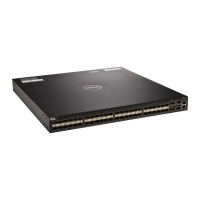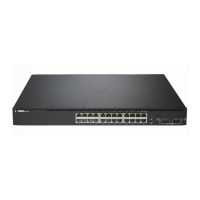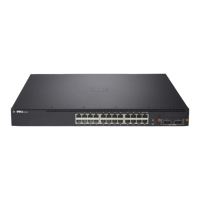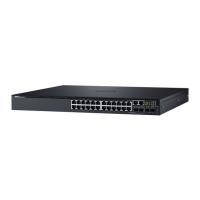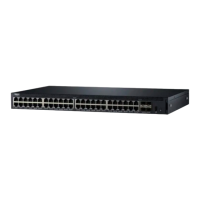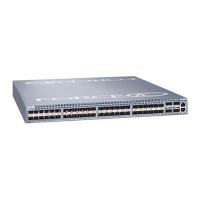58 System Firmware Version 5.1.0.1
Known Issues
The following are all the outstanding known issues from previous releases. The issues listed here may have been discovered on
any of the switches listed on the title page.
Release 5.1.0.1
Summary User Impact Workaround
Molex QSPF DAC Cable
with part number
111040-1104 does not
comply with QSFP
specification SFF-8436.
These cables do not
support 'voltage'
diagnostics.
Voltage is displayed as 0.00 instead of "N/A" for
this diagnostic parameter.
Ignore the voltage displayed field for this part
or use a SFF-8436 compliant cable.
<Username> Command
Missing
The “show aaa ias-users [username]” command
seems to have been deprecated even though it
still exists in the CLI guide.
The same information can be seen within the
running configuration of the switch with the
“show running-config” command.
fail when logging level is
default
PowerConnect 7048 switches that are setup to
send email alerts for log messages at the default
level can produce the following log message:
Email Send Failed! No of Email sends Failed So
Change the email logging level to something
other than default, i.e. informational alerts. The
switch will then send the alerts with no issues.
provisioned ports in
stacked environment.
The Web UI seems to be saving the configuration
for pre-provisioned ports but when the stack is
reloaded the configuration for these ports are no
longer correct.
traffic occasionally
forwarded onto internal
ports
Occasionally external CDP/ISDP packets are
being forwarded to the internal ports. This
results in confusing information from the blade
server point of view as multiple directly
connected neighbors appear to be seen.
cease sending multicast
are timed out and
removed from the
multicast forwarding
cache after 150 seconds
If an intermittent multicast source that has been
aged out of the multicast forwarding cache
begins sending again before the corresponding
S,G entry has timed out at the RP (185 seconds
per RFC 4601), any *,G entries (joined hosts)
may take up to one IGMP Query interval to begin
receiving the multicast stream.
The default IGMP query interval is 125
seconds. In practice, this situation is very
unlikely to occur as a multicast source that fails
to send even one packet for 150 seconds is
unlikely to start sending packets before the S,G
entry at the RP times out.
Release 5.0.1.3
ipv6 ping is not reliably
working
IPv6 functionality requiring Neighbor Discovery
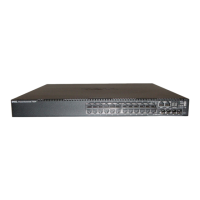
